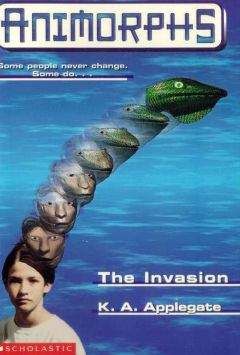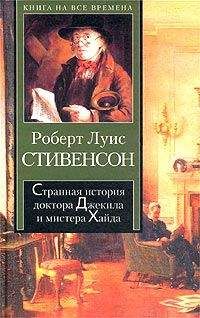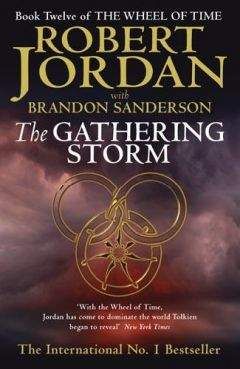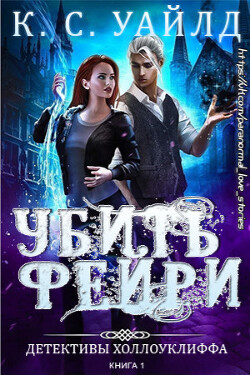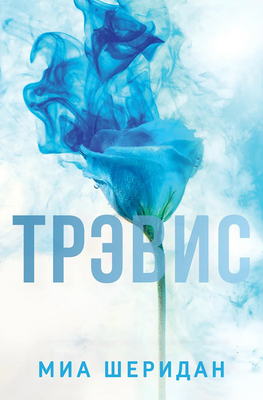Robert Stevenson - Английский язык с Р. Л. Стивенсоном. Странная история доктора Джекила и мистера Хайда
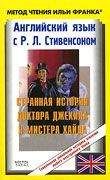
Помощь проекту
Английский язык с Р. Л. Стивенсоном. Странная история доктора Джекила и мистера Хайда читать книгу онлайн
abhorrence [qb'(h)Orqns] condemnation ["kOndqm'neIS(q)n] prostration [prO'streIS(q)n] nightmare ['naItmeq] avail [q'veIl]
When I came to myself at Lanyon's the horror of my old friend perhaps affected me somewhat: I do not know; it was at least but a drop in the sea to the abhorrence with which I looked back upon these hours. A change had come over me. It was no longer the fear of the gallows, it was the horror of being Hyde that racked me. I received Lanyon's condemnation partly in a dream; it was partly in a dream that I came home to my own house and got into bed. I slept after the prostration of the day, with a stringent and profound slumber which not even the nightmares that wrung me could avail to break.
I awoke in the morning shaken (утром я проснулся душевно измученным; to shake — трясти; потрясать, волновать), weakened (ослабевшим), but refreshed (но посвежевшим). I still hated and feared the thought of the brute that slept within me (мне все еще была ненавистна и ужасала мысль о том звере, который спал во мне; to hate — ненавидеть; to fear — бояться), and I had not of course forgotten the appalling dangers of the day before (и, конечно же, я не забыл ужасающих опасностей предыдущего дня); but I was once more at home (но я снова был дома), in my own house and close to my drugs (в своем собственном доме, рядом со своими лекарствами); and gratitude for my escape shone so strong in my soul (и благодарность за спасение столь сильно светила в моей душе; escape — бегство, побег; избавление, спасение) that it rivalled the brightness of hope (что соперничала с яркостью надежды).
brute [bru:t] appalling [q'pO:lIN] rival ['raIv(q)l]
I awoke in the morning shaken, weakened, but refreshed. I still hated and feared the thought of the brute that slept within me, and I had not of course forgotten the appalling dangers of the day before; but I was once more at home, in my own house and close to my drugs; and gratitude for my escape shone so strong in my soul that it rivalled the brightness of hope.
I was stepping leisurely across the court after breakfast (после завтрака я не спеша шагал по двору), drinking the chill of the air with pleasure (с удовольствием упиваясь прохладой воздуха), when I was seized again with those indescribable sensations that heralded the change (когда меня вновь охватили те не поддающиеся описанию ощущения, которые предвещали превращение): and I had but the time to gain the shelter of my cabinet (и у меня едва хватило времени обрести убежище = укрыться в своем кабинете), before I was once again raging and freezing with the passions of Hyde (прежде чем я вновь неистовствовал и застывал от страстей Хайда = опять горел и леденел страстями Хайда). It took on this occasion a double dose to recall me to myself (в этот раз потребовалась двойная доза, чтобы мне вновь стать самим собой; to recall — отзывать/посла, депутатаит. п./; вернуть, возвратить); and, alas! six hours after, as I sat looking sadly in the fire, the pangs returned (и, увы, через шесть часов, когда я сидел и глядел печально на огонь, муки = знакомыеспазмы вернулись; pang — внезапнаяостраяболь), and the drug had to be re-administered (и мне вновь пришлось принять лекарство; to administer — управлять, вестидела; применять, давать/лекарство/).
leisurely ['leZqlI] herald ['herqld] alas [q'lxs] administer [qd'mInIstq]
I was stepping leisurely across the court after breakfast, drinking the chill of the air with pleasure, when I was seized again with those indescribable sensations that heralded the change: and I had but the time to gain the shelter of my cabinet, before I was once again raging and freezing with the passions of Hyde. It took on this occasion a double dose to recall me to myself; and, alas! six hours after, as I sat looking sadly in the fire, the pangs returned, and the drug had to be re-administered.
In short from that day forth (короче говоря, начиная с того дня) it seemed only by a great effort as of gymnastics (казалось, что только ценой огромных усилий, подобных занятию гимнастикой; gymnastics — гимнастика), and only under the immediate stimulation of the drug (и лишь при немедленном применении лекарства; stimulation — толчок, побуждение, стимул; стимуляция), that I was able to wear the countenance of Jekyll (я был способен сохранить: «носить» внешний вид = обличье Джекила).
At all hours of the day and night I would be taken with the premonitory shudder (в любой час дня и ночи меня, бывало, охватывала предупреждающая дрожь); above all, if I slept, or even dozed for a moment in my chair (и, прежде всего, если я спал, или даже на мгновение засыпал, /сидя/ в кресле; above all — преждевсего, главнымобразом, восновном; большевсего), it was always as Hyde that I awakened (то всегда просыпался Хайдом).
gymnastics [dZIm'nxstIks] immediate [I'mi:dIqt] premonitory [prI'mOnIt(q)rI]
In short from that day forth it seemed only by a great effort as of gymnastics, and only under the immediate stimulation of the drug, that I was able to wear the countenance of Jekyll. At all hours of the day and night I would be taken with the premonitory shudder; above all, if I slept, or even dozed for a moment in my chair, it was always as Hyde that I awakened.
Under the strain of this continually impending doom (из-за этого напряжения от постоянно надвигающейся гибели = из-за этого вечного ожидания неизбежного; doom — рок, судьба; роковойконец, гибель) and by the sleeplessness to which I now condemned myself (и от бессонницы, на которую я теперь обрек себя; to condemn — осуждать, порицать; обрекать), ay, even beyond what I had thought possible to man (да, даже за пределами того, что я считал возможным для человека), I became, in my own person, a creature eaten up and emptied by fever (я, своей собственной персоной = Джекил, превратился в существо, съедаемое и опустошаемое лихорадочным возбуждением; fever — лихорадка), languidly weak both in body and mind (полностью обессиленное как телом, так и духом; languid — слабый, истомленный; weak — слабый/физически/, бессильный), and solely occupied by one thought (и единственно/исключительно занятое одной только мыслью): the horror of my other self (ужасом перед своим вторым «я»: «перед своим другим ‘я’»). But when I slept, or when the virtue of the medicine wore off (но когда я спал, или когда действие препарата заканчивалось; to wear off — изнашиваться), I would leap almost without transition (я погружался, почти без перехода; to leap — прыгать) (for the pangs of transformation grew daily less marked) (потому что с каждым днем боли/муки превращения становились все слабее) into the possession of a fancy brimming with images of terror (в обладание фантазией, наполненной ужасными образами; possession — владение, обладание; одержимость; image — изображение; мысленныйобраз, представление; brim — край; to brim — наполняться до краев), a soul boiling with causeless hatreds (душой, которая кипела беспричинными ненавистями), and a body that seemed not strong enough to contain the raging energies of life (и телом, которое казалось не достаточно сильным, чтобы вместить неистовые энергии жизни; energies — усилия, активность, деятельность). The powers of Hyde seemed to have grown (сила Хайда, казалось, возросла = Хайд словно обретал мощь) with sickliness of Jekyll (с болезненностью Джекила = по мере того, как Джекил угасал; sickly — болезненный, часто болеющий; хилый; нездоровый, болезненный).
languidly ['lxNgwIdlI] occupied ['OkjupaId] causeless ['kO:zlIs] hatred ['heItrId] sickliness ['sIklInIs]
Under the strain of this continually impending doom and by the sleeplessness to which I now condemned myself, ay, even beyond what I had thought possible to man, I became, in my own person, a creature eaten up and emptied by fever, languidly weak both in body and mind, and solely occupied by one thought: the horror of my other self. But when I slept, or when the virtue of the medicine wore off, I would leap almost without transition (for the pangs of transformation grew daily less marked) into the possession of a fancy brimming with images of terror, a soul boiling with causeless hatreds, and a body that seemed not strong enough to contain the raging energies of life. The powers of Hyde seemed to have grown with sickliness of Jekyll.
And certainly the hate that now divided them (и, безусловно, та ненависть, что теперь разделяла их) was equal on each side (была равной с обеих сторон). With Jekyll, it was a thing of vital instinct (для Джекила это был вопрос самосохранения; vital — жизненный; жизненноважный; instinct — инстинкт, чутье). He had now seen the full deformity of that creature (теперь он увидел полное = крайнее уродство того существа) that shared with him some of the phenomena of consciousness (которое делило с ним некоторые стороны сознания; phenomenon /pl. phenomena/ — явление, феномен), and was co-heir with him to death (и должно было стать сонаследником его смерти; heir — наследник): and beyond these links of community (и за пределами этих объединяющих звеньев; community — община; сообщество, объединение), which in themselves made the most poignant part of his distress (которые сами по себе составляли наиболее мучительную часть его несчастья; poignant — уст. острый/опредметах/; горький, мучительный), he thought of Hyde, for all his energy of life (он считал Хайда, несмотря на всю его жизненную энергию), as of something not only hellish but inorganic (чем-то не только демоническим, но и неживым: «неорганическим» = чем-то не причастным органическому миру).
